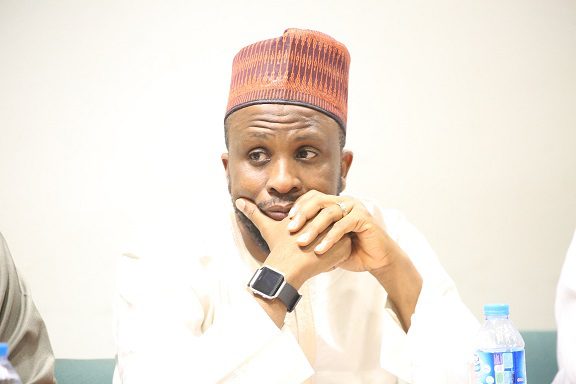The House of Representatives has given a 14-day deadline to Dangote Cement, BUA, Lafarge Ashaka, and other cement companies in Nigeria to appear before the House and explain the sudden increases in the price of cement across the country.
During a public hearing in Abuja on Tuesday, Mr Gaza Gbefwi, the Chairman of the House Committee on Solid Minerals, issued the directive as part of the investigation into the sharp hike in cement prices by manufacturers in Nigeria.
On March 13, 2024, The PUNCH reported that the House adopted a motion on the “Arbitrary increase in the price of cement by the cement manufacturers in Nigeria” and set up a joint committee to look into the matter.
During the recent public hearing, none of the cement companies attended or sent representatives to make submissions on their behalf.
Expressing frustration, Gbefwi, representing Karu/Keffi/Kokona Federal Constituency, Nasarawa State, stated that the parliament had not received any court order preventing them from inviting companies for investigative purposes.
He emphasized the importance of cement in building and urged the companies to make their submissions within 14 days, emphasizing that the committee is concerned about the welfare of Nigerians.
Gbefwi stressed that they would ensure Nigerians are not exploited by companies making huge profits while the citizens struggle to afford housing, and he mentioned the abundant resources in the nation.
The joint committee resolved to give the companies 14 days to make their submissions and appear before the House, not just 14 working days, to address the issue of affordable housing.
The Speaker, Abbas Tajudeen, represented by the Deputy Speaker, Benjamin Kalu, assured the readiness of the House to create legislation to support the country's industrialization.
He also assured the invited companies that the parliament's aim is not to persecute them, but to assist in addressing the challenges caused by frequent cement price hikes in the building sector.
He emphasized the commitment to collaborate with cement manufacturers and end-users to improve citizens' quality of life and to enact laws preventing future price hikes.
The aim is to let Nigerians know about the current state of the industry and work together to find solutions for the challenges. The continuous increase in cement prices has negatively affected not just construction but also the whole economy. Cement is crucial for building things like bridges, houses, and roads, so it's really important to address this issue.
According to research by the African Development Bank, Kalu mentioned that there is a shortage of 16.9 million homes, and cities like Lagos, Ibadan, Kano, and Abuja have a 20% increase in housing needs every year. Currently, the formal housing sector only produces about 100,000 units.
The Deputy Speaker stated that closing this gap requires making cement prices affordable and accessible for both the government and the private sector.
Although factors like exchange rates have led to price increases for various goods, it's good to see positive outcomes from the “Renewed Hope” administration’s policies under Bola Tinubu's leadership. The naira has been strong against the dollar lately, and Fitch Ratings, a global credit rating agency, recently improved Nigeria’s credit outlook from stable to positive.
Gbefwi mentioned in his speech that Nigeria has a significant shortage of about 3 million homes and a large infrastructural deficit.
He said: “The recent events causing the sharp increase in cement prices in Nigeria have been worrying and are causing a lot of hardship for Nigerians.
“To fill this gap, the government and the private sector need to carefully and purposefully put the right policies and conditions in place to encourage development.
He also mentioned that the cost of cement in Nigeria is higher compared to other African countries when using the current exchange rate between the dollar and local currencies.
“When we look at cement prices in other countries like Kenya, India, and Zambia for 2021, we see that Nigeria has the highest price using the official exchange rates for each country. Nigeria’s price is 69% higher than India's, 29% higher than Kenya's, and 39% higher than Zambia's; so it's important for us to come together and figure out why,” he added.



